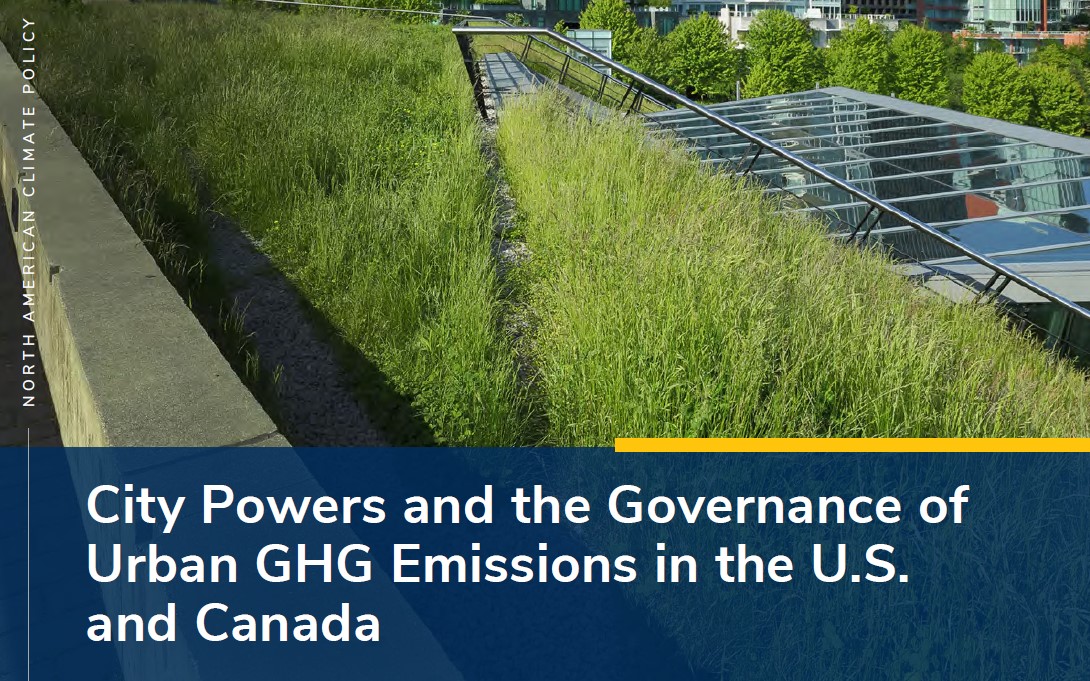This paper is part of the North American Colloquium (NAC), a collaborative venture between the Autonomous National University of Mexico, University of Toronto, and University of Michigan. Established in 2018, the NAC brings together leading academic analysts and practitioners from Mexico, Canada and the United States to address key social and policy issues facing all three countries. Each year, the three partner universities select a theme, and one serves as the host to convene joint activities throughout the year.
City powers and the governance of urban GHG emissions in the U.S. and Canada
Reducing urban greenhouse gas (GHG) emissions is critical to meeting larger climate change targets. Cities are responsible for as much as 75 percent of fossil fuel CO2 emissions due to high levels of energy use and consumption plus fossil fuel-intensive transportation systems (IPCC 2014).

Key findings
- City governments in the U.S. and Canada have maintained and accelerated their climate change commitments, even when support from state, provincial, and federal governments has dwindled.
- Interdepartmental, intergovernmental, and intersectoral collaboration and coordination are central to achieving deep reductions in urban GHG emissions and should be institutionalized.
- Collaboration within and between city departments is also necessary for implementing climate change mitigation policies, and cities continue to experiment with organizational strategies for achieving this.
- Accelerated action on urban climate change mitigation requires metrics of success that are transparent, democratic, and support accountability
- Different strategies will work differently or be more relevant in different contexts, and this may not map neatly onto national contexts. Taking on the key sources of urban emissions––energy generation, building energy efficiency, and transportation systems––requires nuanced and tailored collaborations that center community voices.